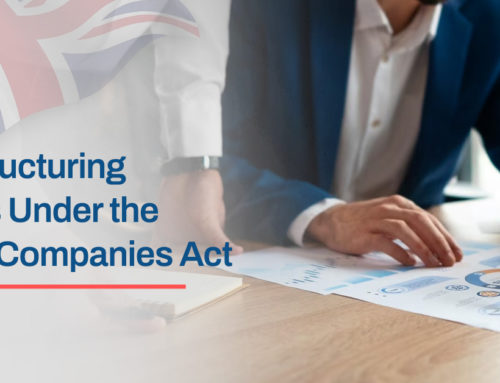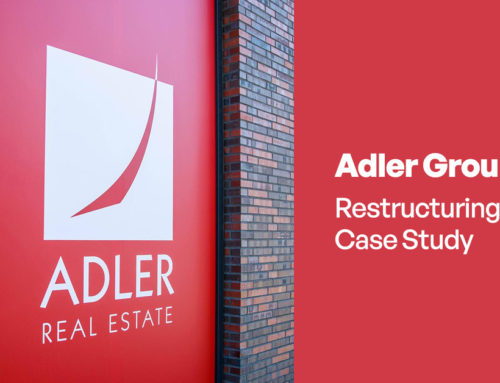Although many have returned to work, there are still millions of workers on the Government-backed furlough scheme. This means the UK’s Debt Management Office (DMO) is working overtime in selling gilts, or government bonds, to pay the difference between what the government raises in taxes and spending to pay for the COVID-19 pandemic. This also means that businesses across the country are sitting down and working out how they are going to deal with their own individual debt crises.
The coronavirus pandemic is forcing the UK into a recession the likes of which have never been seen in peacetime. The Office for Budget Responsibility predict that the Chancellor, Rishi Sunak, may well need to borrow close to £300 billion in order to ‘balance the books’. The longer it takes to recover the economy, the more likely many further businesses will fall into significant debt just to survive, let alone continue trading.
So, what are businesses doing in order to pay off corporate debt and what plans are they putting into action? Any business owner knows that to grow, money needs to be invested. But in times like these, taking on significant loans to increase workspace, buy equipment and materials or, indeed, provide a marketing budget does not make business sense. First, any debts need to be paid off so that the revenue being generated can be refocused on business growth, instead of paying off debts.
The business budget – time to reset the business’s finances
According to a recent Gallup poll, 36% of SMEs are unhappy with the level of debt their business is carrying; 49% admit they are finding it hard to manage their current debt. Running a business is no longer a joy; it’s become a nightmare. When working out a business debt plan, first and foremost is to know exactly where your business’s debt lies, what the total business debt is and then to make a new business budget.
Next, understand where your cash flow is coming from, i.e. how much income are you generating as a business monthly and yearly. From that income, allocate all your expenses, such as rent, rates, staff PAYE and expenses. Once these figures are in the business budget, calculate how much the business is able to pay towards the debt monthly.
Debt reduction strategy
Any successful debt recovery plan needs to have a comprehensive strategy that is applicable to the business, easy to manage and doesn’t stretch the purse strings further than is necessary. The debt reduction strategy will largely depend on the business’s cash flow, the level of debt and how quickly the debt needs to be paid off.
There are generally two types of debt reduction strategy:
- Spartan strategy – this business debt plan creates an ‘essentials-only’ plan of spending, outlining what business expenses won’t be paid until the debt is reduced, and finally paid off.
- Percentage strategy – with this business debt plan, the business dedicates a percentage of the business’s profit to paying off the debt.
However, these business debt strategies will only be successful if they are in alignment with the business budget. In addition, it is advisable to set a timeframe in which to pay off the debt and that includes paying the interest on the debt. Setting up a business debt plan and allocating funds to pay off the debt is one thing, sticking to it is another matter entirely. Without a definitive debt end date to keep the motivation levels high and be able to measure the success of debt recovery, it would be easy to slip back a step or two and quickly find the business back where it started.
Debt restructuring
If the business has loans, if may be possible to restructure the debt, thereby reducing the amount owed. Reread the terms of the loan as there may be loopholes that could adversely affect the business if extra is being paid. For example, some lenders will allocate any surplus payments to a future payment, whilst others might deduct it from the loan capital, which would affect cash flow. However, if the debt is in the form of a line of credit, or a credit card, this will probably not apply.
Renegotiate
Before you fall behind on regular payments, contact any vendors, loan providers and suppliers to try to renegotiate terms. For example, you can try extending payment terms on invoices, agreeing a discount for paying an invoice early or negotiating a bigger discount on certain items. Most lenders and suppliers would much rather work out a repayment solution than be forced into a position of passing the debt to a collection agency. However, be aware that any negotiating on loan or credit terms is likely to affect the business’s credit score.
Debt consolidation
Many small businesses are entering into debt consolidation plans which can significantly simplify debt repayments and often incurs lower interest levels. For a business that has multiple loans, lines of credit or credit cards, this is a viable option. But a word of warning: lenders may require personal guarantees or collateral as security against the loan and that might be too much of a risk for the business.
Spend less
With a new business budget in place, it is much easier for a business to see where they are spending, how much and on what. Once you know where you’re spending is going, such as office suppliers, staff, rent and rates, and raw materials, working out where a business can reduce their spending is a much easier task. It also provides a clear view of where costs can be cut, such as reducing office space to eliminate paying for underutilised areas.
For businesses that have bought large items such as machinery, it is worth considering selling them and leasing them back from the vendor; it may reduce overall costs.
With many businesses across the UK generating much lower revenues in 2020, finding solutions to not only spend less but reduce debt levels is a priority. As well as the points mentioned above, businesses are also looking at ways to generate additional income. This can come from diversifying into untapped markets, raising prices for key products and services that are popular, reducing inventory levels, upselling products and services at discounted rates and limited offers or through subscriber-only deals. What’s more it’s seen businesses sell off assets or stock that are unused.
If you’re unsure which direction to go in with your business and are struggling to make ends meet, contact Leading today to discuss business debt plans on 01603 552028 or visit our website Leading UK.






